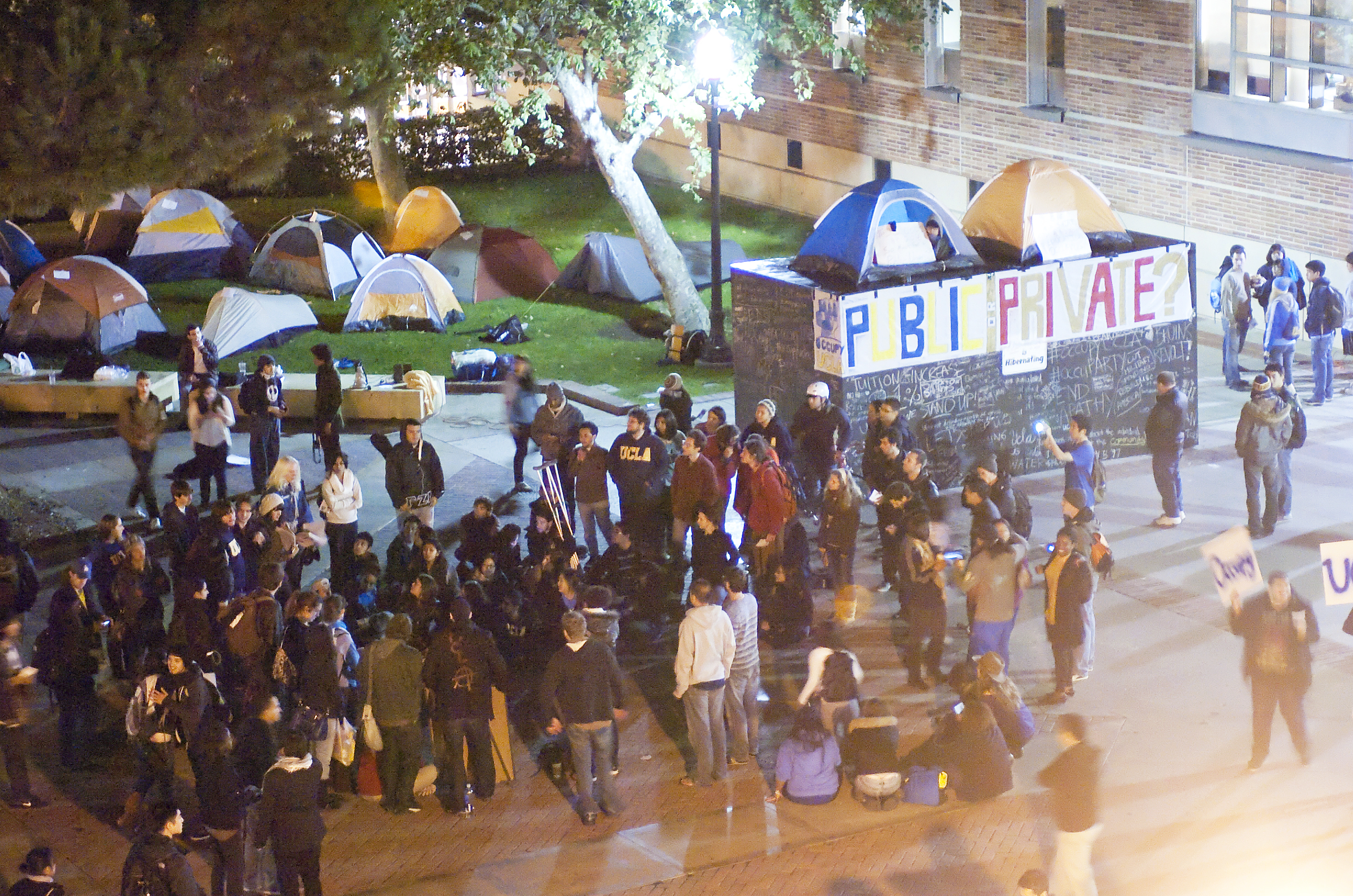Occupy protests prompt UC-wide review of policies and procedures

About 100-150 protesters at Bruin Plaza the evening of 11/21.
By Devin Kelly
Nov. 23, 2011 12:35 a.m.
UCLA administrators are treading carefully after controversial police actions at sister University of California campuses drew harsh criticism from around the nation this week.
A system-wide review of policies and procedures during protests is underway after a video of a UC Davis police officer pepper-spraying nonviolent protesters went viral. The events came two weeks after UC Berkeley police came under fire for beating protesters with batons.
Both events heightened a sense of caution.
“Certainly, emotions have run high on campuses,” Chancellor Gene Block said. “We’re alert to that.”
That alertness has influenced decision-making. Early Friday morning, police arrested 14 protesters in the middle of an overnight campout without confrontation. Events unfolded at UC Davis later that day.
On Monday, protesters camped out all night in front of the James West Alumni Center without being disturbed.
“We’re trying to put safety and really being practical over policy,” Block said. “It in part reflects that we’re going through a difficult period right now.”
Early this week, UC President Mark Yudof held a teleconference with top officials from around the UC, including executive Vice Chancellor and Provost Scott Waugh, to discuss campus policies during protests.
Yudof encouraged campus leaders to think about how to ensure the best outcome for specific events, Waugh said.
To a lesser degree, UCLA has been here before. University police used Tasers, batons and mace on protesters at the November 2009 UC Board of Regents meeting on the UCLA campus, according to a post-event report conducted by an independent panel. It sparked an immediate response, with more than 100 faculty signing a letter in protest.
The panel did not find evidence that police had overreacted or used excessive force. It did conclude improved communication between police and the university was necessary. The report informed recent decisions, Waugh said.
“We lived through that event, which is uncomfortable,” Waugh said. “We don’t want it to happen again.”
Another consideration moving forward is communication with demonstrators. The administration usually looks to student leaders to represent student concerns. In the case of Occupy, the democratic nature of the movement means those leaders have not been identified.
“It’s a different approach, but it does make it a bit difficult,” Block said.
He said he would like to see student governments work as an “interface” with the Occupy demonstrators.
Joelle Gamble, external vice president of the Undergraduate Students Association Council, said she has played that role recently. She said she has attended most of the general assemblies and relayed information to administrators.
Occupy UCLA does not have a uniform method of communication with administrators, wanting to recognize different tactics, said Andrew Newton, a fourth-year international development studies student and Occupy UCLA protester.
Block said exchanges have been civil and respectful, and he hopes to maintain that environment.
The next UC regents meeting will take place Monday via teleconference, with the UCLA branch at the James West Alumni Center. Occupy UCLA is fully committed to nonviolence during demonstrations, Newton said.
But, he added, that does not mean protesters do not plan to be disruptive.


